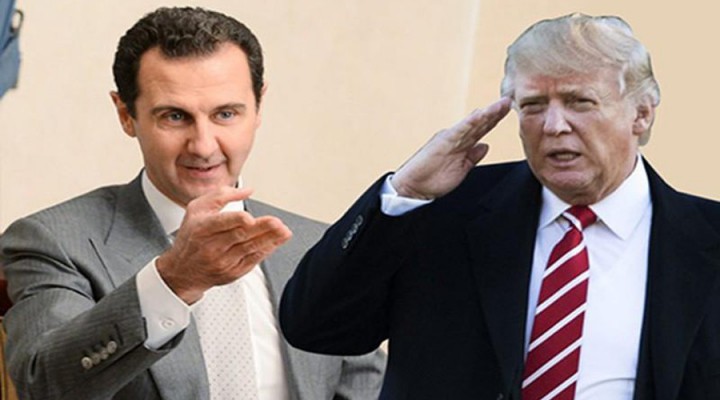On the road to Damascus

Slowly but surely, Syria’s enemies have been beating a path to its door
Syria may not have returned to the Arab League. But it is clear that the countries that suspended its membership of the organization a decade ago at the behest of the US are slowly but surely returning to Damascus – if not on the orders of, then at least without opposition from, Washington.
Three recent developments illustrate an important change of attitudes towards Syria and the government of President Bashar al-Assad.
First, it was revealed that President Donald Trump sent two high-level aides – counterterrorism advisor Kash Patel and special envoy Roger Carstens – on a secret visit to Damascus in August where they met with national security chief Ali Mamlouk.
Secondly, the resumption of Syrian passenger flights to Qatar after a break of nearly ten years. This follows the restoration of civil aviation links with the UAE two years ago and the reopening of the country’s embassy in Damascus
Third, the Turkish government’s withdrawal from its biggest military observation post in Syria, the Morek base in the Hama countryside, which has been encircled by Syrian government forces since last year. Convoys carrying troops and equipment were reported to have evacuated the site escorted by Russian military police to protect them and prevent any clashes breaking out.
Remarkably, the Syrian authorities achieved these gains without making any concessions. They also snubbed Trump’s envoys. He sent them to seek Damascus’ help in securing the release of six Americans detained in Syria, which he hoped would give a boost to his re-election campaign. But the Syrians reportedly told them there could be no discussions on the matter as long as US military forces remain in occupation of Syrian territory without the government’s permission. Earlier, Asad failed to reply to a letter from Trump requesting the release of the Americans, particularly a freelance journalist and former marine named Austin Tice, who Syrian sources insist is linked to US intelligence.
The Syrian government did not comment on reports in the US media of the envoys’ secret visit. But it was confirmed by the semi-official newspaper al-Watan, which stressed that the Syrian side insisted on the full withdrawal of US forces from northern and eastern Syria before talks could be held on any other subject.
The Trump administration has used carrot-and-stick tactics to get Syria to comply with its demands. The latest stick was the Caesar Act which tightened US sanctions on Syria and anyone doing business with it. The latest carrot was a statement by Trump’s special representative for Syria, James Jeffrey, that the US does not want to change the Syrian regime but only its behavior. Damascus was neither intimidated by the stick nor lured by the carrot.
It was no small thing for Trump to send personal emissaries to the Syrian capital. Such secret talks between enemies are usually held in neutral third countries. The move smacked of desperation to get a deal done by any means. Some tempting offers were undoubtedly made to Mamluk, but so long as these fell short of complying with the Syrian demand for a military withdrawal they were disregarded, and the envoys left empty-handed.
By sending a letter to Assad followed by two White House emissaries, Trump implicitly recognized Assad and his legitimacy after failing to engineer the overthrow of the regime. The same can be said of the Arab states that have reopened their airports to Syrian airliners after having pumped billions of dollars into fueling the Syrian civil war.
Assad once famously remarked that the cost of surrender would be far higher for Syria than the cost of standing fast. These three developments appear to vindicate him. The first fruits of steadfastness, perhaps. Further surprises may follow in the months to come.
https://www.raialyoum.com/index.php/on-the-road-to-damascus/
 TheAltWorld
TheAltWorld 
0 thoughts on “On the road to Damascus”